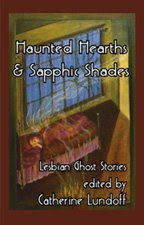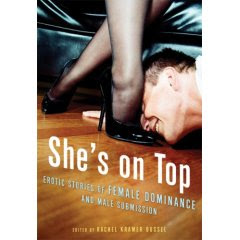
So what does a smut writer keep close as she writes?
Books.
That's what you were thinking, right?
Right.
Reading off the spines straight across the top shelf near my computer:
Roget's Thesaurus. Open to 41.1 REDNESS. I was looking for a word for red that also had a musical connotation. Didn't find one. I frequently work layers of meaning into stories by choosing words that can pull double duty. Sometimes it's refreshing to have red simply mean red though. The thesaurus rests on top of the other books because I got tired of pulling it off the shelf. Now it's at the perfect height to stand in front of as I flip through pages.
Great World Atlas. Maps fascinate me. I pour over this when I'm doing research. Geography influences culture.
Merriam Webster Dictionary. Sanity check for spellchecker.
Outbursts - A.D. Peterkin. So I can teach my spellchecker dirty words.
The Art of Seduction - Robert Greene. While you can't watch Casanova at work, at least you can get a good overview of his technique. When you write short stories, you can get away with physical attraction as the driver for the plot. Once you get into a novel length work though, you need to show seduction. Learn from the masters.
Leatherman's Handbook - Larry Townsend. This is aimed at a queer audience, but he's so at ease with the subject, knowledgeable, and very readable. Can't beat that combination. Even though he probably doesn't mean to present a history lesson, he shares interesting insights into the changes in queer culture over the past thirty years or so.
Slang and Euphemism - Richard Spears - When I want to make sure my improper English is proper. No better or worse than any other slang dictionary. Not essential.
Dr. Tatiana's Sex Advice To All Creation - Olivia Judson. If you write speculative fiction, and you want to create truly alien beings, this is the source. Transexual fish, multi-sex fungi, cannibalism, genital mutilation, you name it. Your backyard never looked so scary. This book is a font of inspiration for your imagination. If biology had been presented like this in school, I would have been a science major.
The Browsers Dictionary of Foreign Words and Phrases - Mary Varchaver and Frank Ledlie Moore. A great way to find out you've been using some French word the wrong way for years. I use this a lot.
Moist - the last issue printed. I hope Liam is able to get it going again.
Auden's Collected Poems - WH Auden. You probably know his poem
Funeral Blues, which was read in the movie
Four Weddings and a Funeral. I like
Lullaby too. I'm not into poetry. I think I once told someone it was like masturbation -- do it if you have the itch but don't make me watch. My opinion since has completely reversed. Go ahead and show me what you've got. Just don't make me read your poetry.
Black Tulip - Dumas. Combines Dumas, one of my favorite writers, with my passion for stock market history and Tulip Mania. (Okay, you have your hobbies, I have mine. I'm also hooked on Victorian age machinery, clocks, varacolici, steampunk, Baroque models of the universe, and the before mentioned maps. Get your Freudian out and interpret that list.)
Zen philosophy, Zen Practice - Thich Thien-An. I swear I'm going to read this some day.
Be Here Now - Ram Dass. A spiritual picture book. Acid poured down like rain in monsoon season while he created this text (not a guess. He admits it), and I think maybe recreational drugs are required to slog through it on the, "Wow dude! That's, like, wow," level. A Buddhist friend suggested this book to me. I think he's still smirking, the little rat. Or should I say the tall, thin Bob-like rat? You know who you are, Bob. You'll never achieve Samsara like this. Buddhavista, my ass.
The World of Zen - Nancy Wilson Ross. I always find something in this. The section on Zen esthetics in visual art makes me think about the use of silence and space in writing. Hemingway could do that. Read his short story
The Hills Like White Elephants. I'll bet you never thought of Hemingway as Zen before.
The Wisdom of Insecurity - Alan Watts. Deceptively approachable. Has it's massive bullshit moments, but there exist those occasional passages that are like a whiff of spiritual smelling salts. Just so you don't get any ideas - I'd make a lousy Buddhist. But damn, I love that philosophy.
Elements of style - Strunk and White. A different belief system. Am I the only one who suspects that the Strunk wore polka-dot bow ties?
Self-Editing For Fiction Writers - Renni Browne and Dave King if I had to pick only one book to keep, this would be it. When I hear that someone wants to write, I buy this for them. I read it at least twice a year, and always find something to cringe about in my work.
Elements of Arousal - Lars Eighner. This is second only to
Self-editing for fiction Writers. Written for writers of gay smut, this is universally applicable.
Eats, Shoots, and Leaves - Lynne Truss. This won't simply be reshelved; it's going in the giant plastic bin of exile in my garage. I hate her tone.
latest issues of Mental Floss magazine and
Other magazine.
My composition books. I take notes at writer's workshops. Many notes. Mainlining caffeine through an IV drip helps.
Green Man - William Anderson. I keep meaning to write a greenman story. I love a myth that hasn't been castrated.
World Mythology - William Doty. Honesty, I'm not happy with this book. It isn't bad, but I always feel as if the mickey was knocked out of these stories to make them acceptable to Baptist spinsters. I want the hot, natsy originals. If anyone knows a source of unbowdlerized mythology, please share.
Rip-Off, A Writer's Guide to Crimes of Deception - Fay Faron.
Deadly Doses, A Writer's guide to poisons - Serita Deborah Stevens
The Casebook of Forensic Detection - Colin Evans. I lump these together. You might notice a trend. I love mysteries, but I can't seem to write them. Whole different set of talents. So I never use these books, but I can't get past the idea that I just might some day.
A Story is a Promise - Bill Johnson. This is about screenplays, but most is applicable to novels. If you want to chart out your plot, this is a great source.
Cowboy Bebop - volume II. How embarrassing! How did this get there? (I want to be Faye Valentine in another life. Or Spike. Do you think Jet is doing them both?)
Living Wicca - Scott Cunningham. I hang with a lot of wiccans. It's always good to know what kind of wine to bring for Samhain celebrations, or proper guest etiquette for jumping the broom.
latest issue of Asimov's science fiction
Masks of the Gods - Joseph Campbell. Well, if he inspired Lucas to such scintillating dialog and heavy-handed plotting, he must be great. Okay, admission time. I try to read this. Really. I do. Any night I can't get to sleep, I whip this baby out and Zzzzzz.
So, what do you reach for while you're writing smut?
















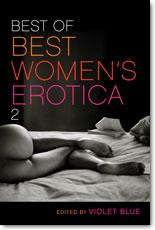

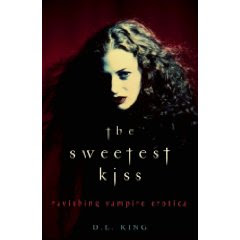


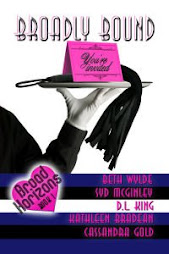.jpg)
